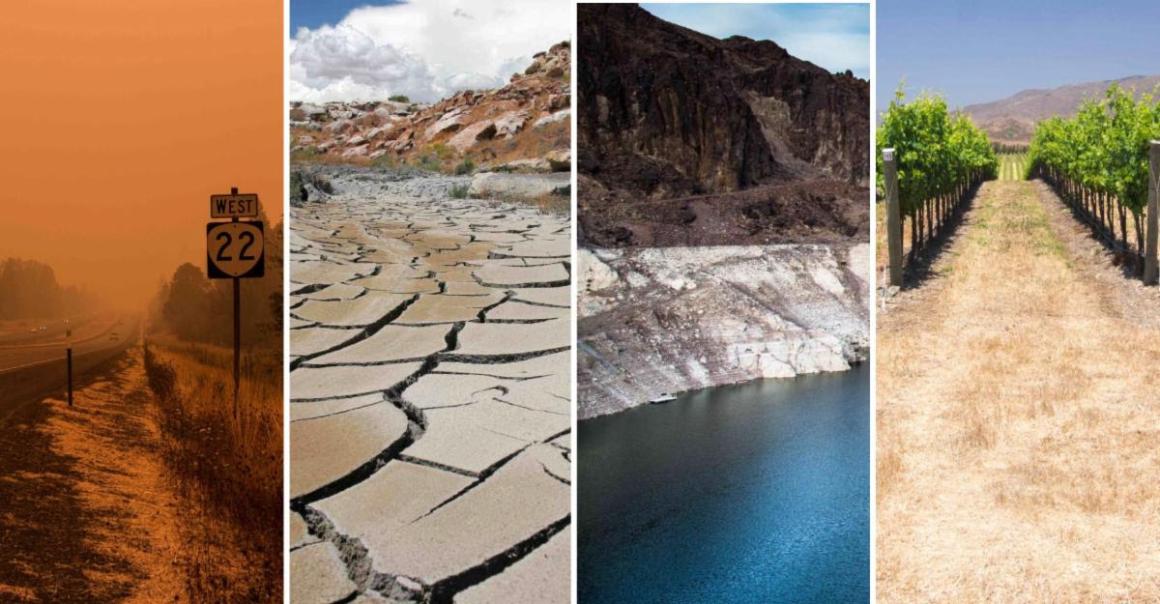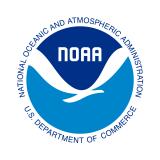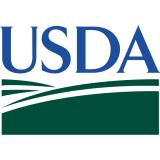Drought Assessment in a Changing Climate Technical Workshop

Drought assessment is being outpaced by climate change. Current methods for assessing drought conditions are not adequately considering drought in the context of climate change, thereby unintentionally promoting drought response strategies that are limited in building long-term resilience in a changing climate.
On February 28–March 1, 2023, NOAA's National Integrated Drought Information System (NIDIS) and the U.S. Department of Agriculture's Climate Hubs co-hosted a Technical Workshop on Drought Assessment in a Changing Climate in Boulder, Colorado.
A pre-workshop virtual webinar was also held on Friday, February 10, 2023. View recordings from the webinar.
Desired outcomes of this technical workshop:
-
Share information on the state of current research on drought monitoring and assessment in a changing climate
-
Identify immediate actions as well as long-term recommendations that can be taken now to improve drought assessment to incorporate climate change information
-
Identify outstanding research questions that would help advance the science of drought monitoring and assessment in a changing change and provide science-based knowledge in support of Federal drought programs and partners
-
Deliver input to support the development of a synthesis paper from the workshop, to serve as a commentary on the key takeaways relevant for improving drought assessment and a strategy for solutions to these challenges, including:
-
Specific needs for changes to drought monitoring/assessment protocols to incorporate climate change information
-
Sectors/systems where drought monitoring needs to be improved/defined, and the appropriate reference periods to inform response/adaptation in these systems
-
Technical Workshop Location
- University Corporation for Atmospheric Research (UCAR)
3080 Center Green Drive, Boulder, CO 80301 - UCAR Meeting Website
- Map
Workshop Agenda
|
Time (MST) |
Agenda Item |
|---|---|
|
8:30 am |
Coffee/Breakfast, Meet and Greet |
|
9:00 am |
Introductions, Goals of the Workshop, Vision for Synthesis Paper |
|
9:15 am |
The Challenge of Assessing and Understanding Extreme Events in a Non-Stationary Climate: Perspectives from NOAA and USDA |
|
9:40 am |
Overview of Critical Topics from Group Leads and Expected Outcomes for Short-Term and Long-Term Recommendations
|
|
10:00 am |
Group Breakouts 1—Small groups: Short-Term/Immediate Actions, Long-Term Recommendations |
|
11:30 am |
Group Breakouts 2—Topical groups: Short-Term/Immediate Actions, Long-Term Recommendations
|
|
12:00 pm |
Lunch |
|
1:00 pm |
Group Breakouts 2—Topical groups: Short-Term/Immediate Actions, Long-Term Recommendations
|
|
2:00 pm |
Break |
|
2:30 pm |
Shift and Shares of Breakouts to solicit ideas from other groups |
|
3:30 pm |
Reconvene topical breakout Groups to implement feedback from the Shift and Share exercise |
|
4:00–4:20 pm |
Wrap-Up and Review Day 2 Agenda |
|
4:30–6:00 pm |
Day 1 Reception |
|
Time |
Agenda Item |
|---|---|
|
8:00 am |
Coffee/Breakfast |
|
8:30 am |
Welcome Back |
|
8:40 am |
Research to Operations Landscape: The “Why” underlying the objective of the Day. How will this research be useful to better drought decision-making in the future? |
|
9:10 am |
Overview of Critical Topics from Group Leads and Expected Outcomes Discussion on Outstanding Research Topics
|
|
9:30 am |
Group Breakouts 1—Small groups: Outstanding Research Questions |
|
11:00 am |
Group Breakouts 2—Topical groups: Outstanding Research Topics
|
|
11:30 am |
Lunch |
|
12:15 pm |
Group Breakouts 2—Topical groups: Outstanding Research Topics
|
|
1:15 pm |
Break |
|
1:30 pm |
Shift and Shares of Breakouts to solicit ideas from other groups |
|
2:10 pm |
Reconvene topical breakout Groups to implement feedback from the Shift and Share exercise |
|
3:00 pm |
Large Group discussion:
|
|
3:50–4:00 pm |
Wrap up & end |
Questions
If you have questions about the technical workshop, please contact Britt Parker or Elizabeth Ossowski.



